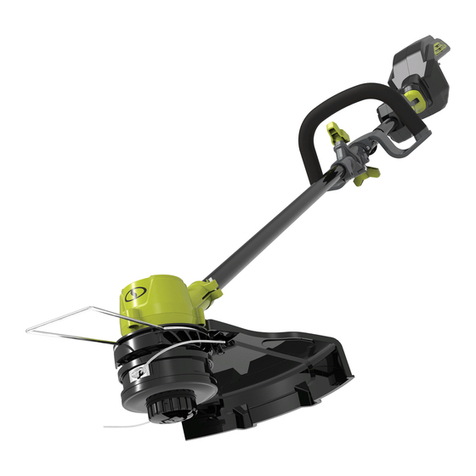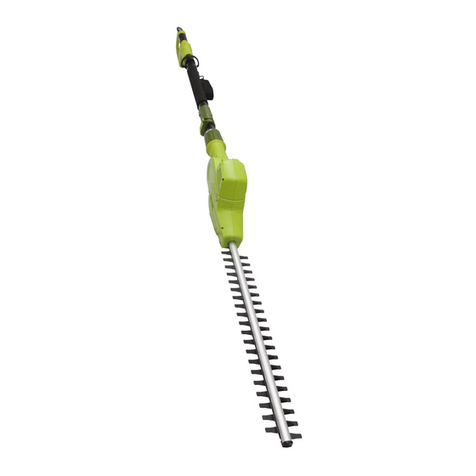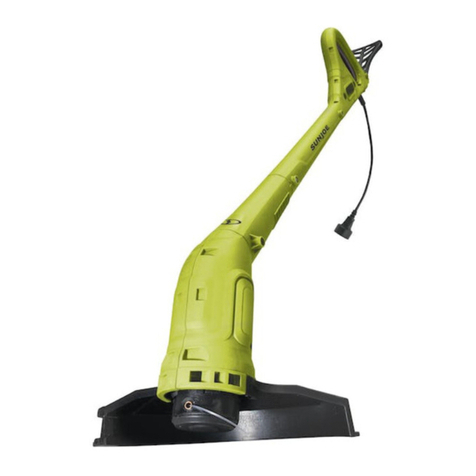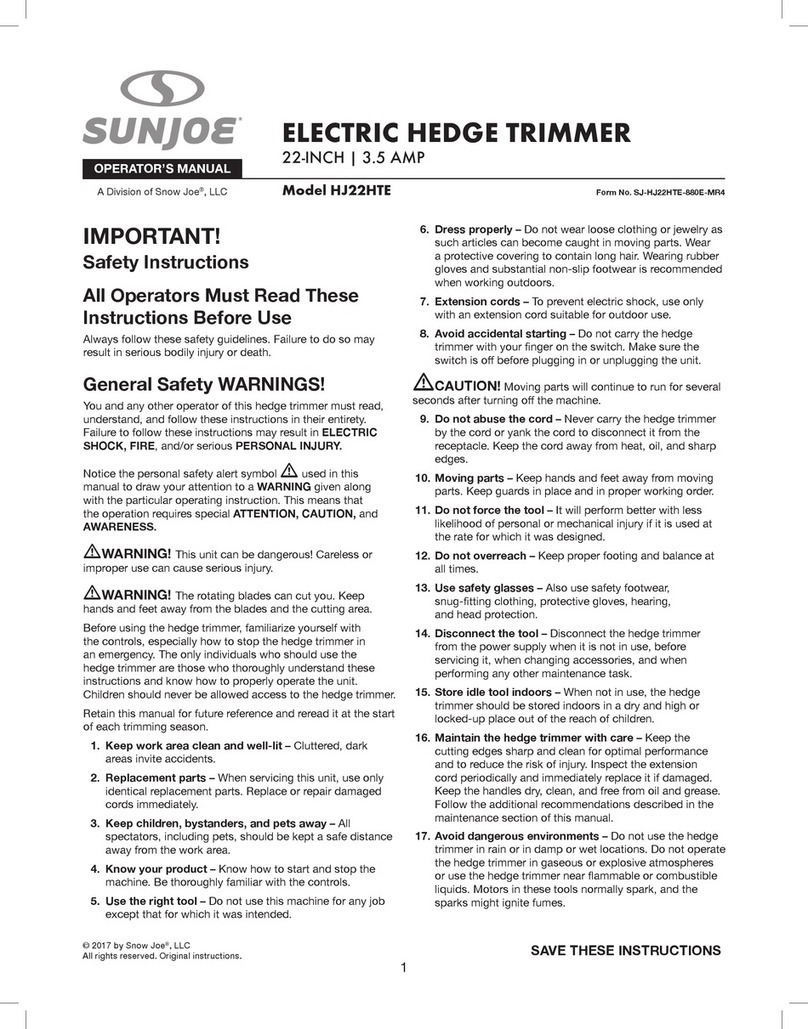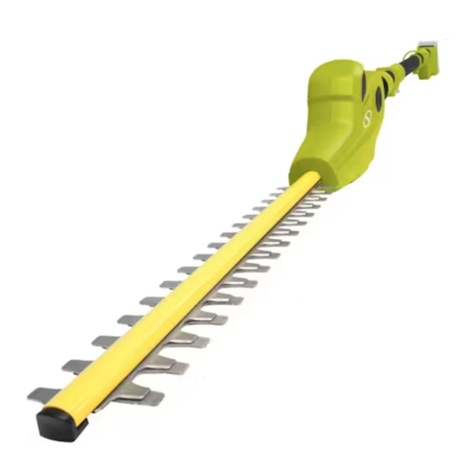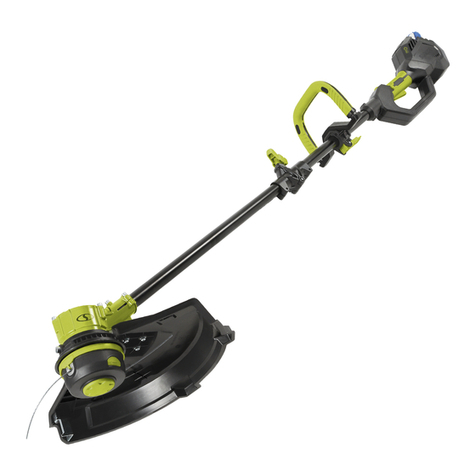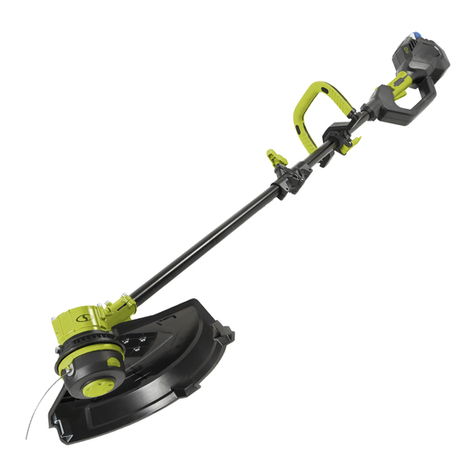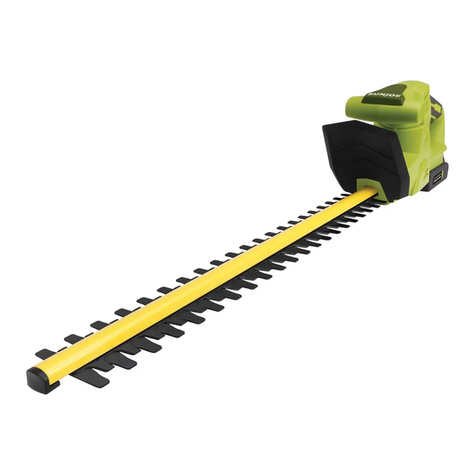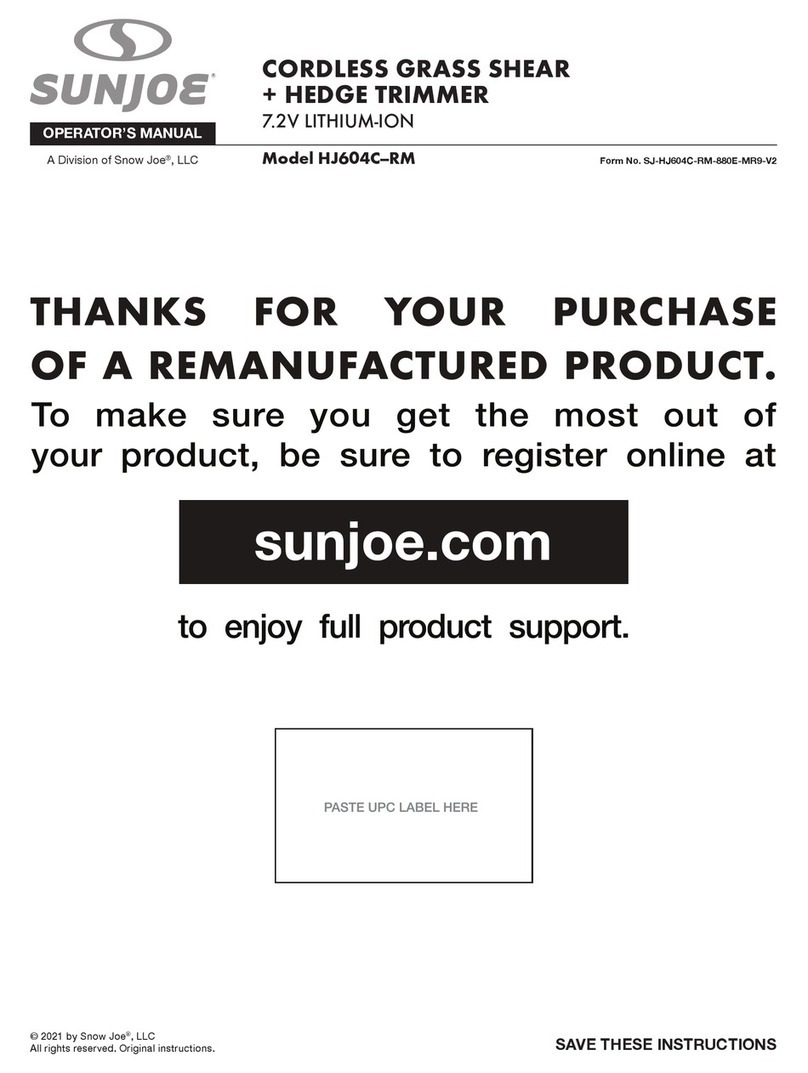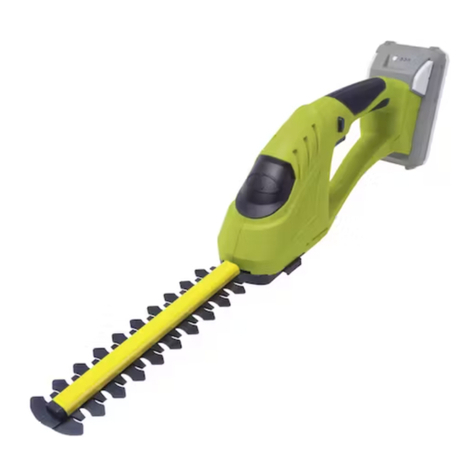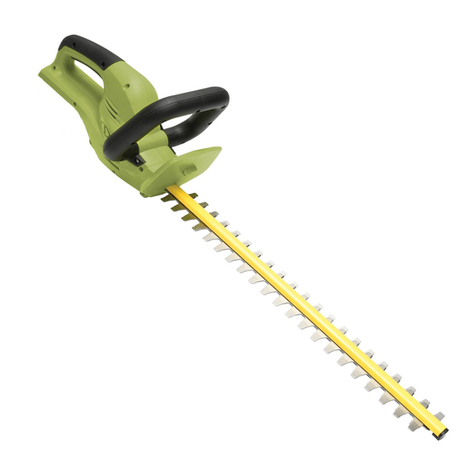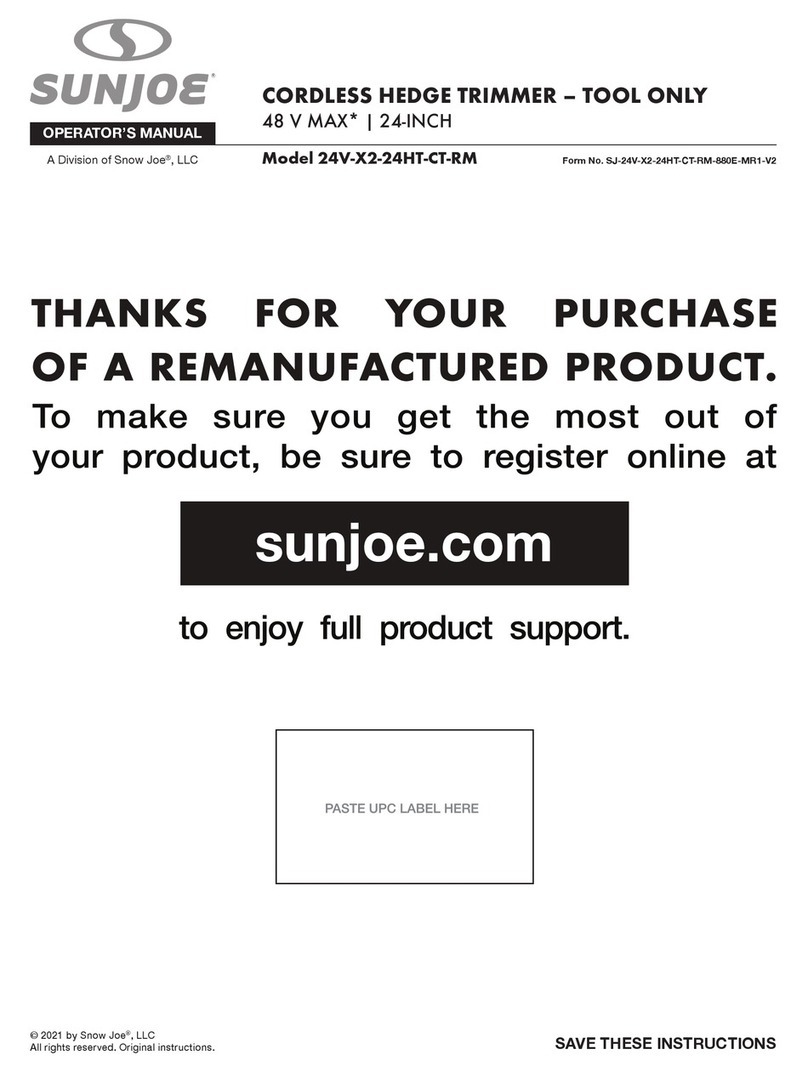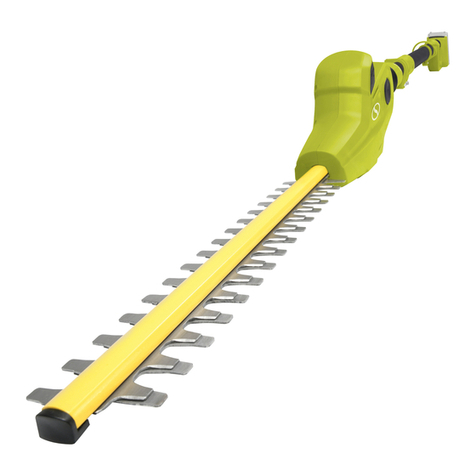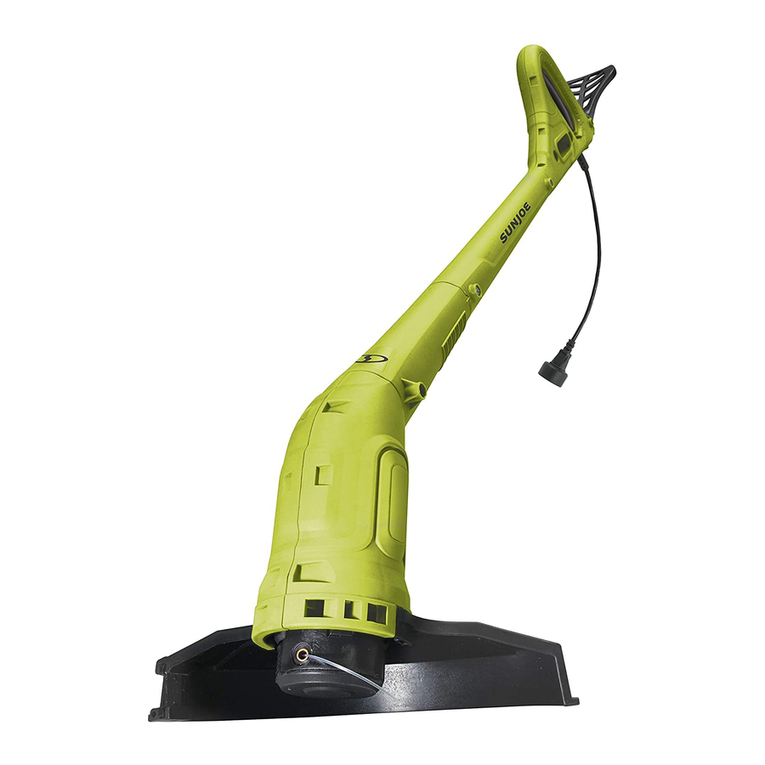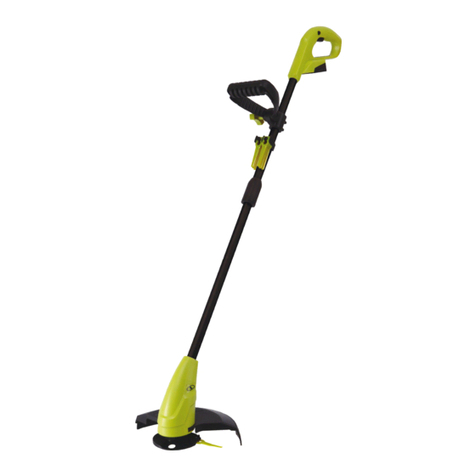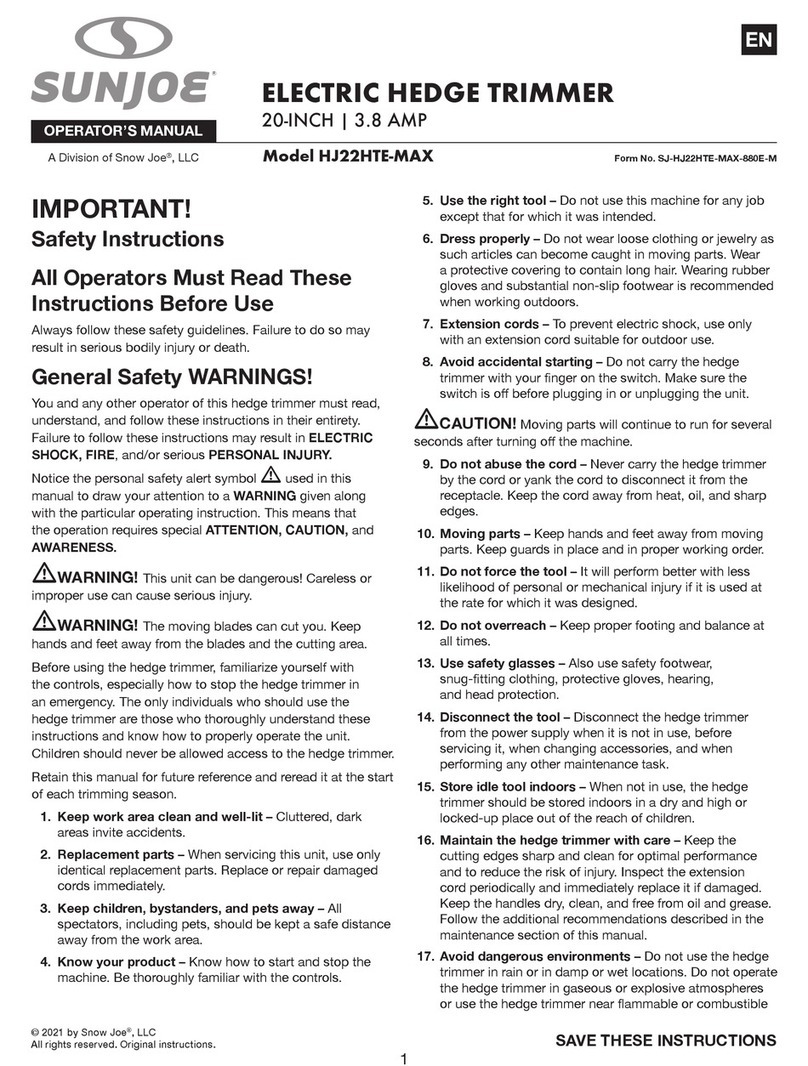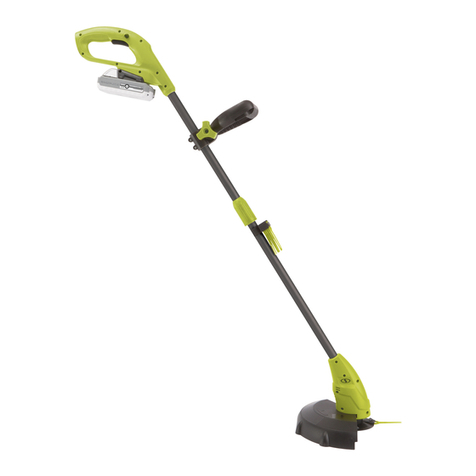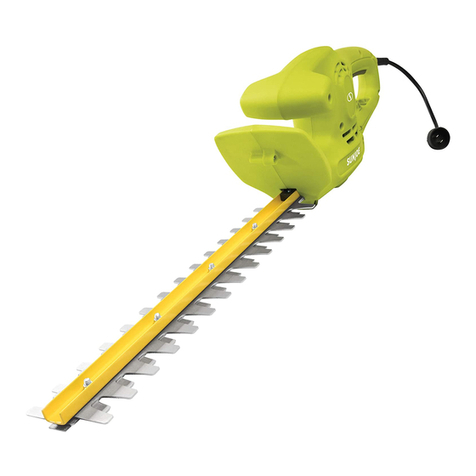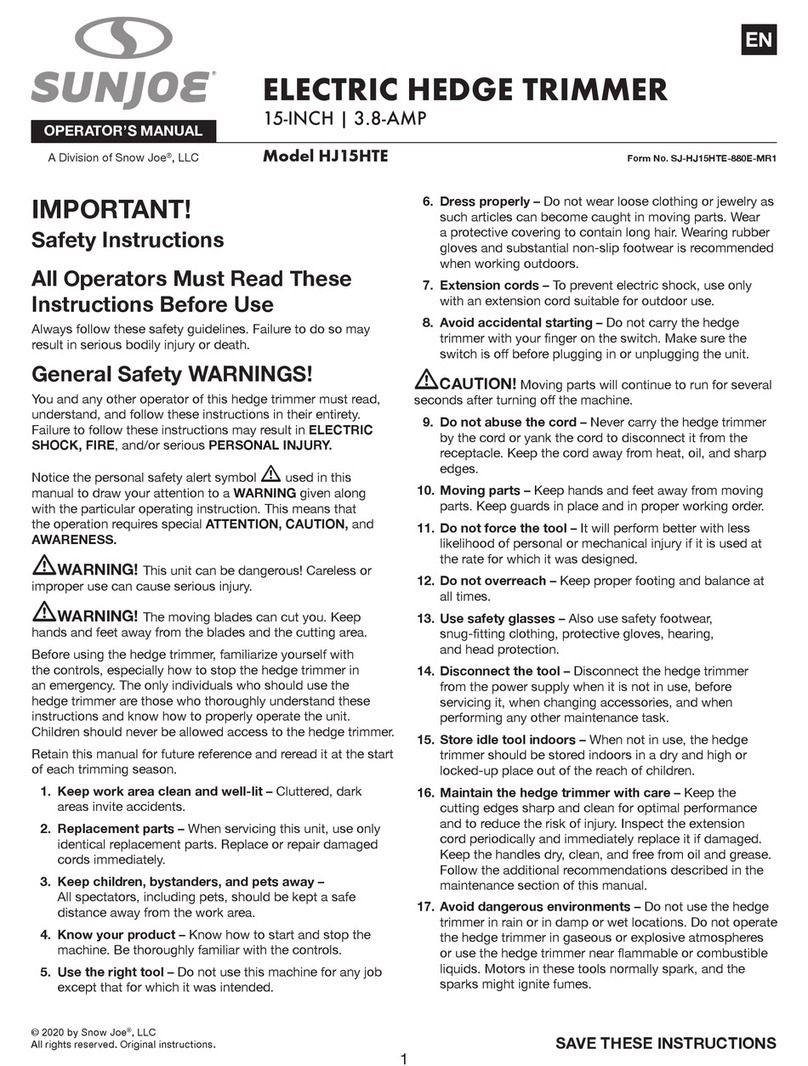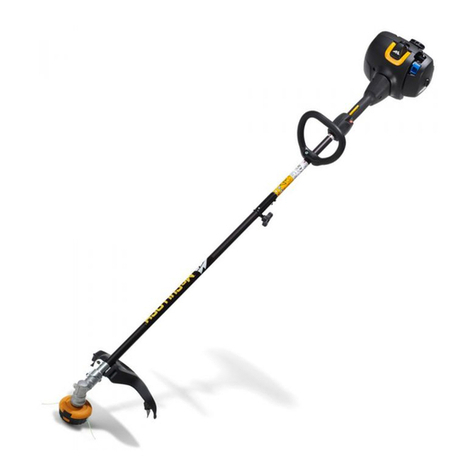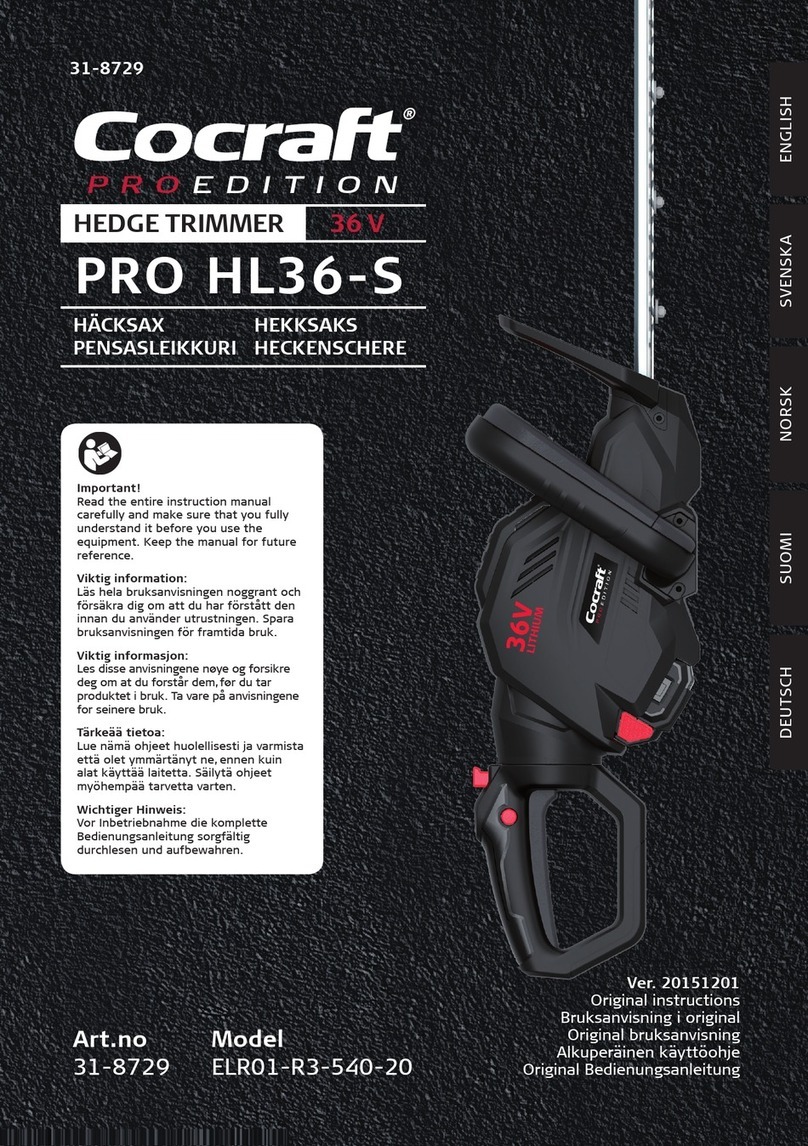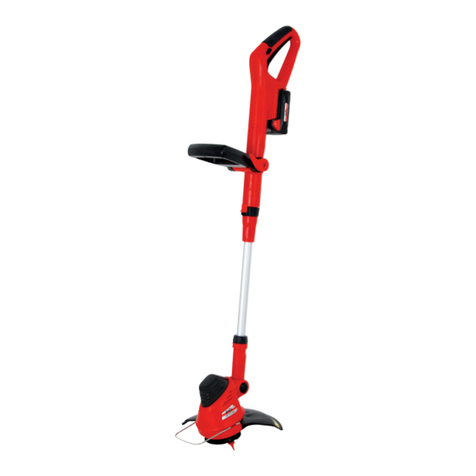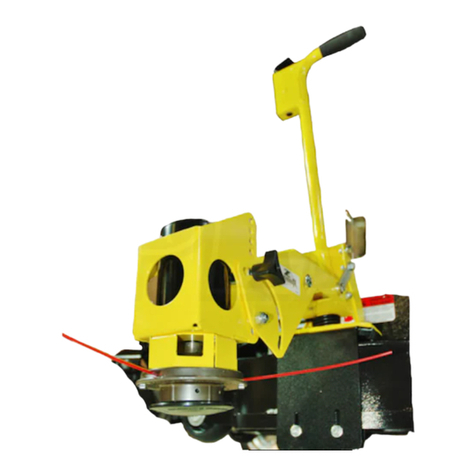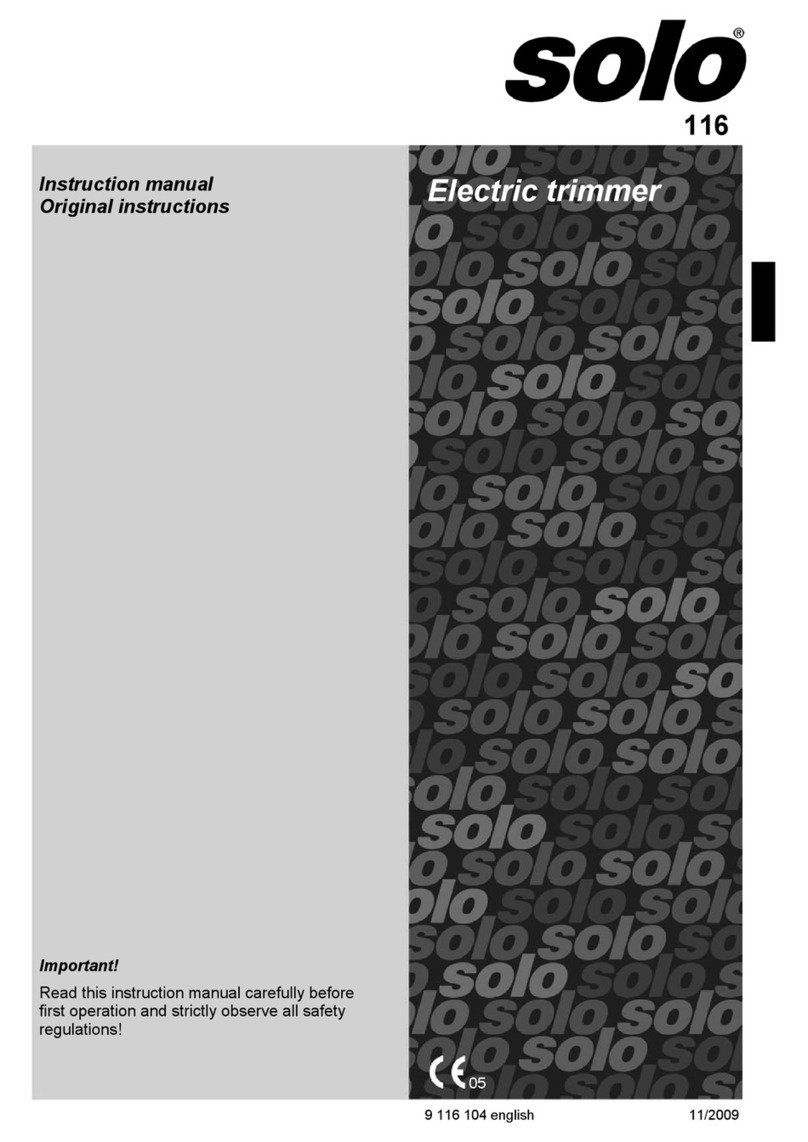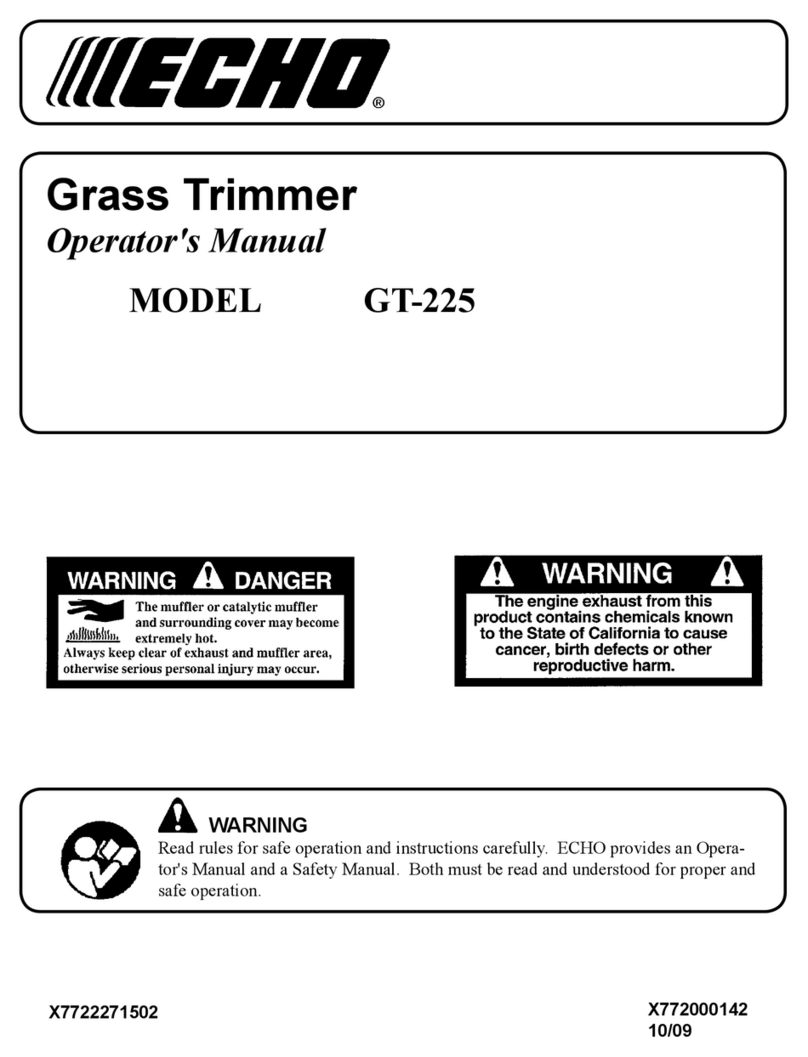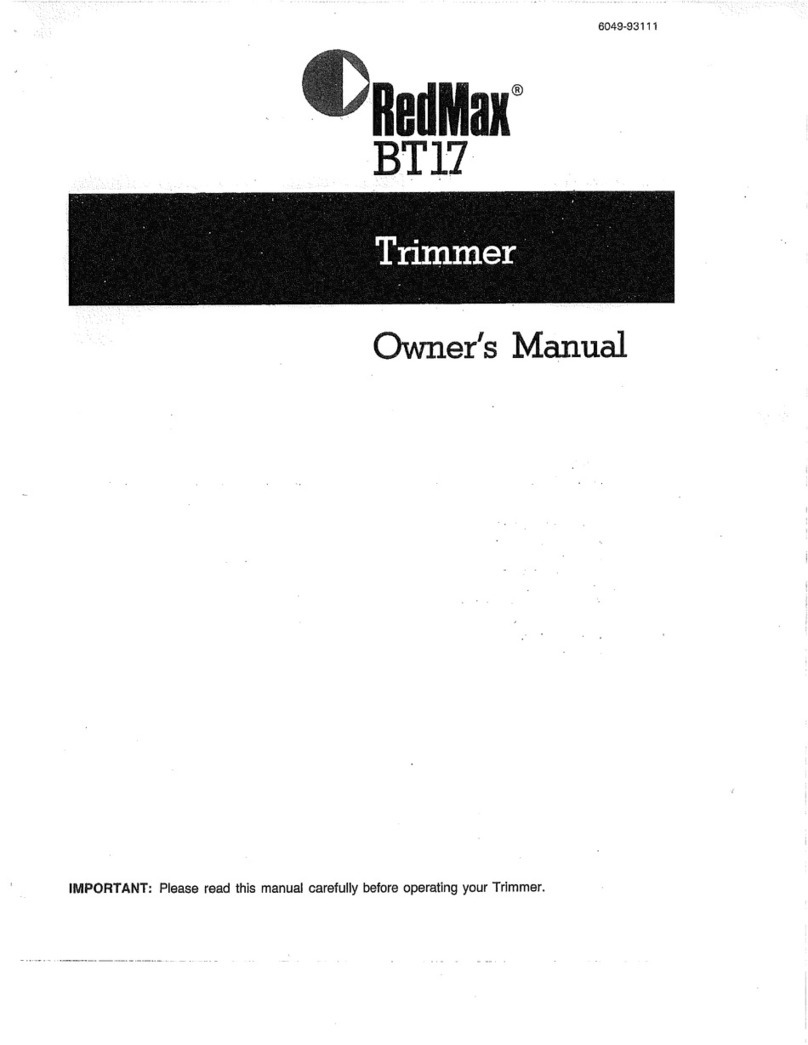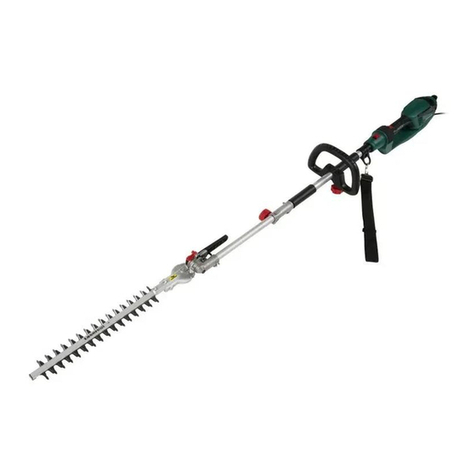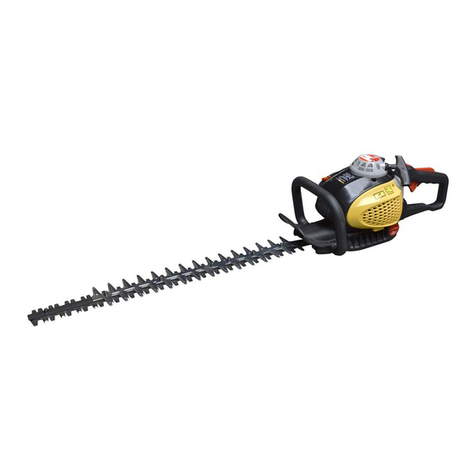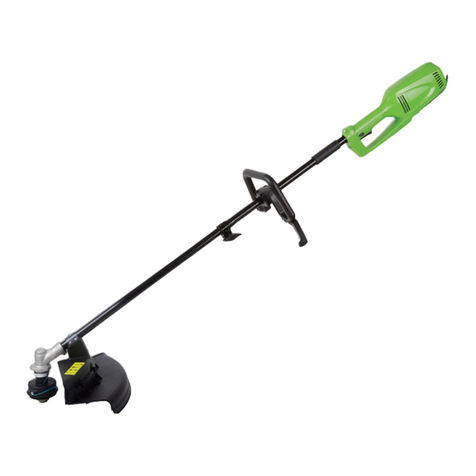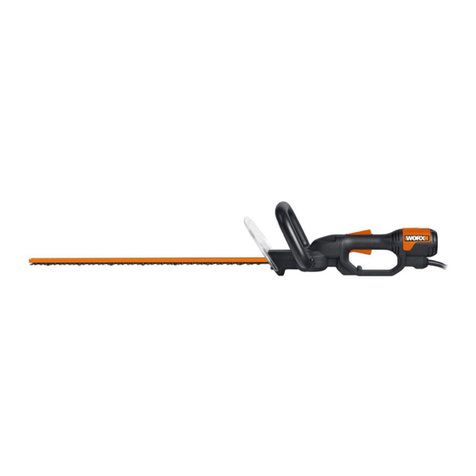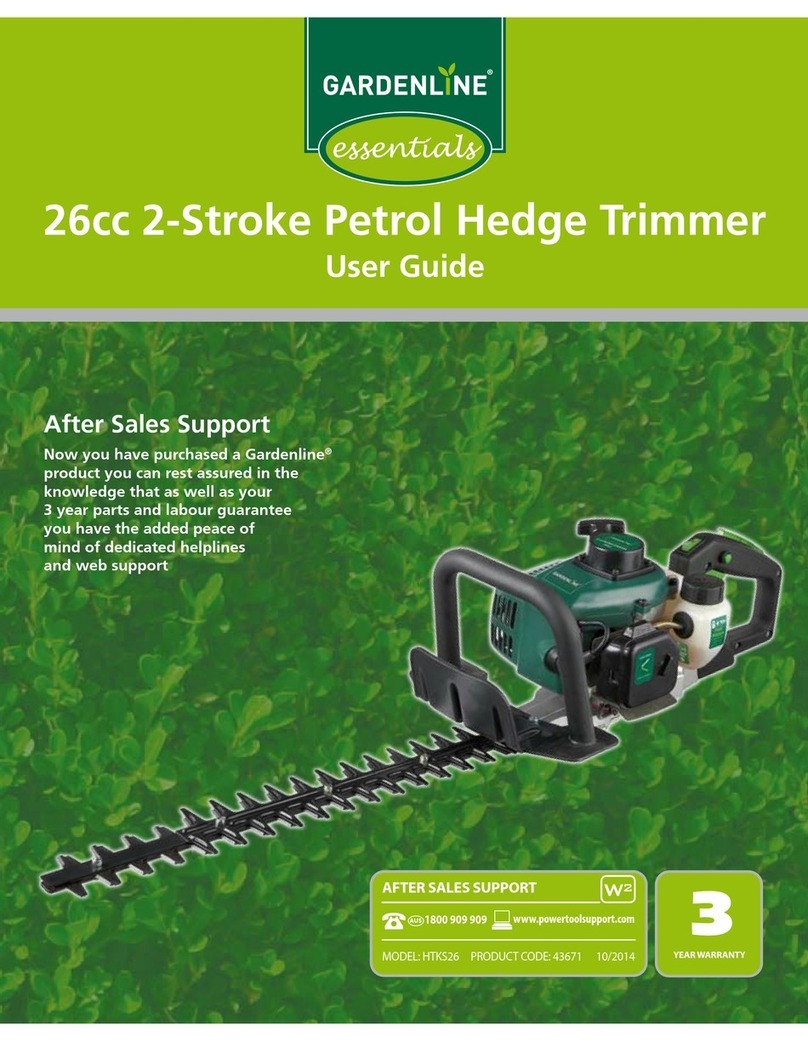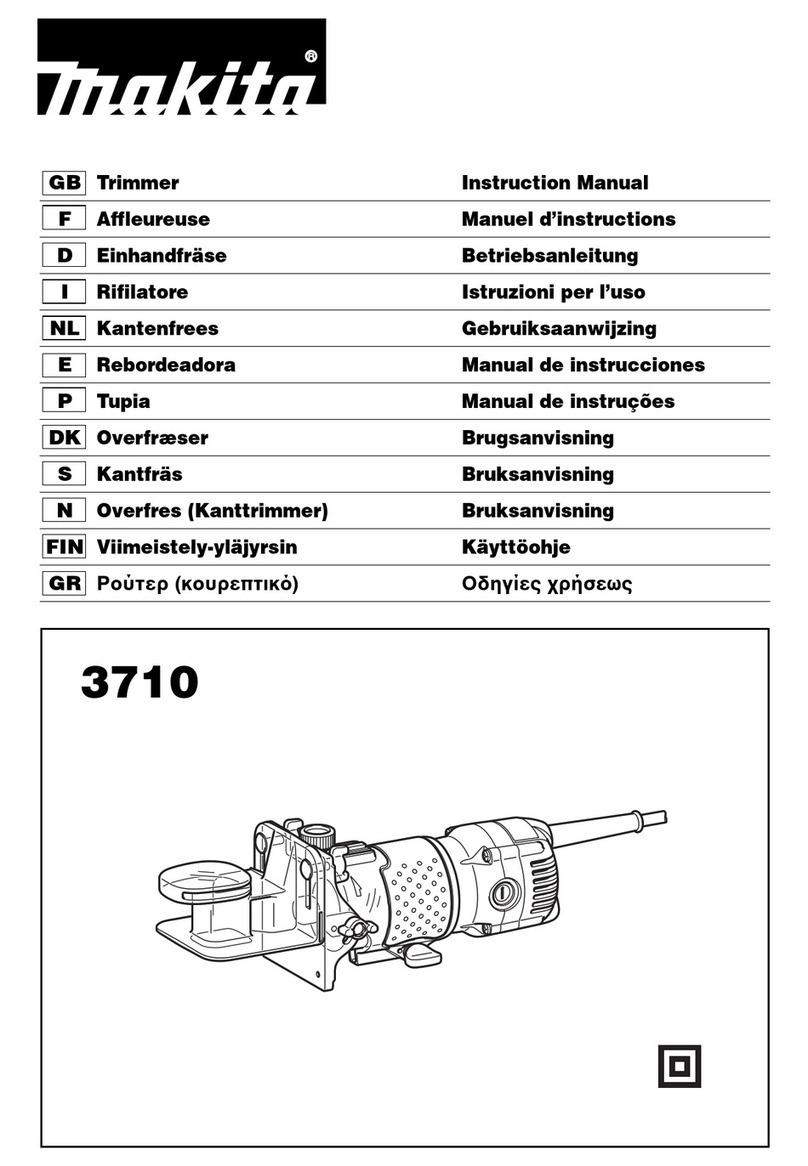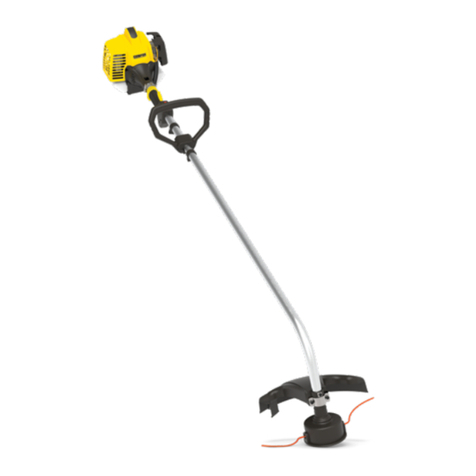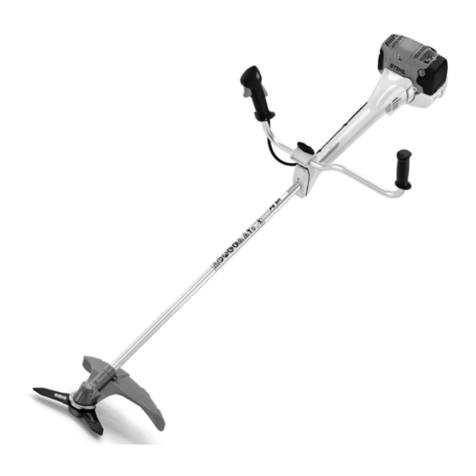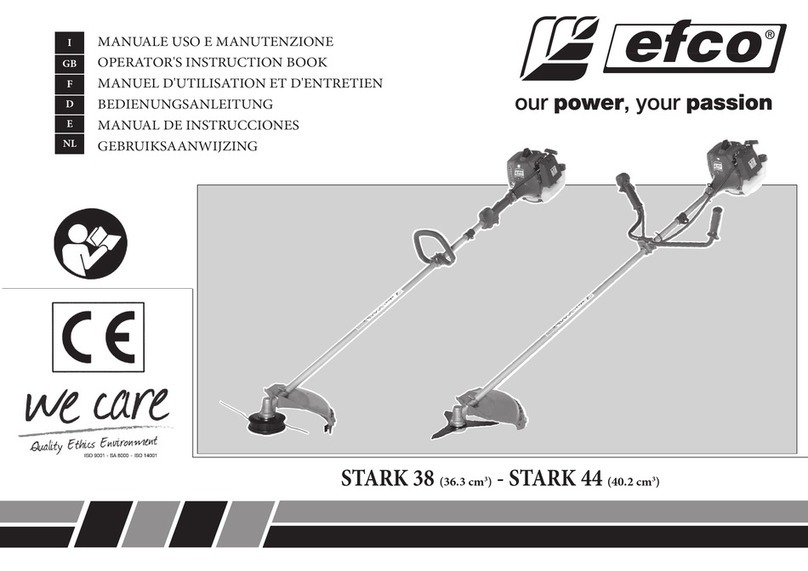
3
mWARNING! Use only approved replacement batteries;
other batteries may damage the cordless trimmer + edger
and cause it to malfunction, which can lead to serious
personal injury.
mWARNING! Do not use a battery pack or appliance that
is damaged or modified. Damaged or modified batteries may
exhibit unpredictable behavior resulting in fire, explosion or risk
of injury.
Do not modify or attempt to repair the battery pack except as
indicated in the instructions for use and care.
Have your battery pack serviced by a qualified repair person
using only identical replacement parts. This will ensure that the
safety of the battery pack is maintained.
mCAUTION! To reduce the risk of injury, charge the
Snow Joe®24V* IONMAXTM lithium-ion battery pack only in its
designated Snow Joe®24V* IONMAXTM lithium-ion charger.
Other types of chargers present risk of fire, personal injury and
damage. Do not wire a battery pack to a power supply plug or
car cigarette lighter. Such misuse will permanently disable or
damage the battery pack.
• Avoid dangerous environments – Do not charge the battery
pack in rain, snow or in damp or wet locations. Do not use
the battery pack or charger in the presence of explosive
atmospheres (gaseous fumes, dust or flammable materials)
because sparks may be generated when inserting or
removing the battery pack, which could lead to a fire.
• Charge in a well-ventilated area – Do not block the charger
vents. Keep them clear to allow for proper ventilation. Do not
allow smoking or open flames near a charging battery pack.
Vented gases may explode.
NOTE: The safe temperature range for the battery is
41°F – 105°F (5°C – 40.5°C). Do not charge the battery
outside in freezing weather; charge it at room temperature.
• Maintain charger cord – When unplugging the charger,
pull the plug, not the cord, from the receptacle to reduce the
risk of damage to the electrical plug and cord. Never carry
the charger by its cord or yank it by the cord to disconnect it
from the receptacle. Keep the cord away from heat,
oil and sharp edges. Make sure the cord will not be stepped
on, tripped over or subjected to damage or stress when the
charger is in use. Do not use the charger with a damaged
cord or plug. Replace a damaged charger immediately.
• Do not use an extension cord unless it is absolutely
necessary – Using the wrong, damaged or improperly wired
extension cord poses a risk of fire and electric shock. If
an extension cord must be used, plug the charger into a
properly wired 16 gauge or larger extension cord with the
female plug matching the male plug on the charger. Make
sure that the extension cord is in good electrical condition.
• Charger XZ2600-0450 is rated for 100 – 240 volt AC
only – The charger must be plugged into an
appropriate receptacle.
• Use only recommended attachments – Use of an
attachment not recommended or sold by the battery charger
or battery pack manufacturer may result in risk of fire, electric
shock or personal injury.
• Unplug charger when not in use – Make sure to remove
battery packs from unplugged chargers.
mWARNING! To reduce the risk of electric shock,
always unplug the charger before performing any cleaning or
maintenance. Do not allow water to flow into the charger.
Use a Ground Fault Circuit Interrupter (GFCI) to reduce
shock hazards.
• Do not burn or incinerate battery packs –
Battery packs may explode, causing personal injury or
damage. Toxic fumes and materials are created when battery
packs are burned.
• Do not crush, drop or damage battery packs – Do not use
the battery pack or charger if they have sustained a sharp
blow, been dropped, run over or have been damaged in any
way (i.e. pierced with a nail, hit with a hammer, stepped on,
etc.).
• Do not disassemble – Incorrect reassembly may pose
a serious risk of electric shock, fire or exposure to toxic
battery chemicals. If the battery or charger are damaged,
contact an authorized Snow Joe®+ Sun Joe®dealer or
call the Snow Joe®+ Sun Joe®customer service center at
1-866-SNOWJOE (1-866-766-9563) for assistance.
• Battery chemicals cause serious burns – Never let a
damaged battery pack contact the skin, eyes or mouth. If a
damaged battery pack leaks battery chemicals, use rubber
or neoprene gloves to safely dispose of it. If skin is exposed
to battery fluids, wash the affected area with soap and
water and rinse with vinegar. If eyes are exposed to battery
chemicals, immediately flush with water for 20 minutes and
seek medical attention. Remove and dispose of contaminated
clothing.
• Do not short circuit – A battery pack will short circuit if a
metal object makes a connection between the positive and
negative contacts on the battery pack. Do not place a battery
pack near anything that may cause a short circuit, such as
paper clips, coins, keys, screws, nails and other metallic
objects. A short-circuited battery pack poses a risk of fire
and severe personal injury.
• Store your battery pack and charger in a cool, dry place –
Do not store the battery pack or charger where temperatures
may exceed 105°F (40.5°C), such as in direct sunlight or
inside a vehicle or metal building during the summer.
